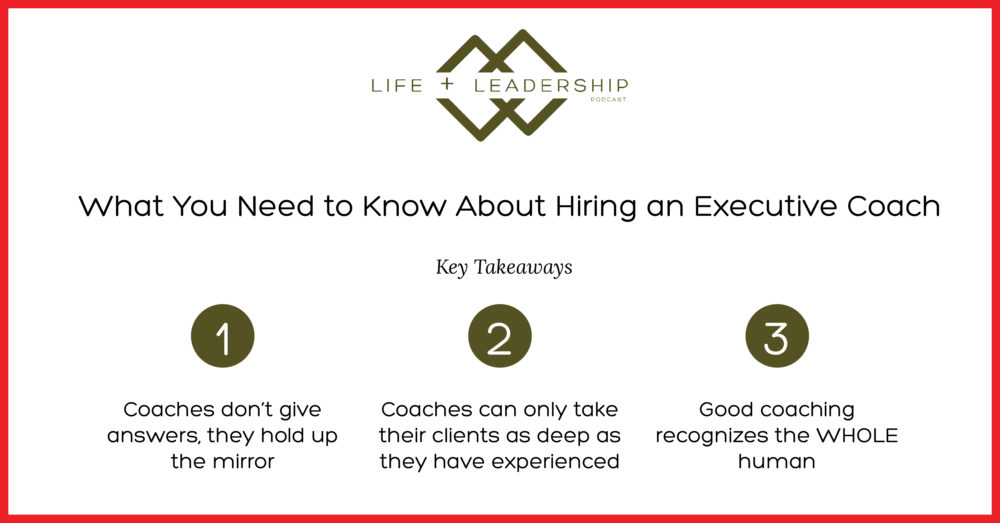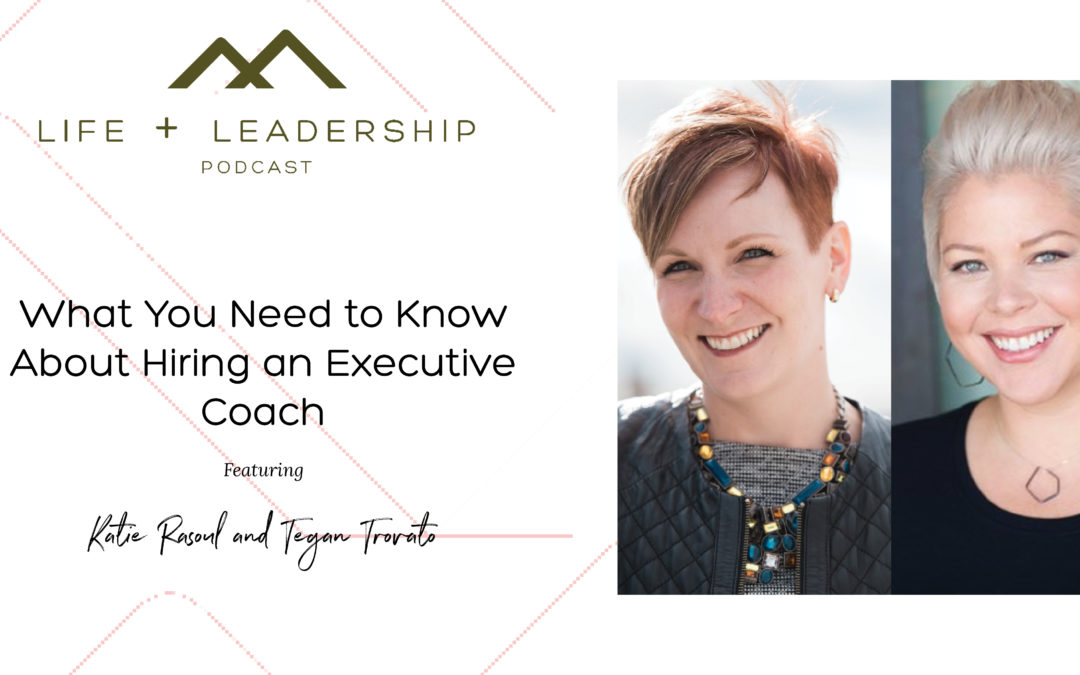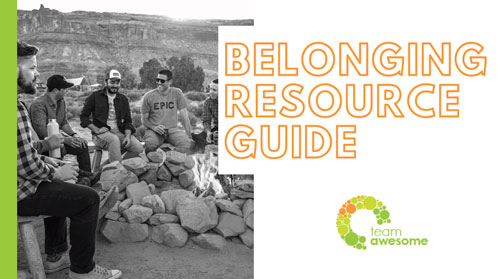So, you want to unlock your potential as a leader or develop the capabilities of the leaders in your organization. How do you know if you need a consultant or a coach? How do you go about finding a professional who’s the right fit? And what can you expect from the process of working with an executive coach?
Today on the podcast, we discuss the value in working with a certified coach and the transformative nature of the certification process, explaining why a coach can only take you as deep as they’re willing to go themselves. We also make the distinction between a coach and a consultant and offer insight into the reasons why leaders might hire an executive coach and the ways coaching can benefit the organization as a whole.
We go on to walk you through the coaching process, describing who’s involved and what makes an individual coachable. Listen in for ideas around what questions to ask prospective coaches and learn how to choose an ICF-accredited executive coach who’s the right fit for you and your circumstances!

Themes explored in this week’s episode:
- The value in working with a certified coach accredited by the ICF and the transformative nature of the robust certification process
- The distinction between coaches and consultants in terms of who asks the questions
- The top reasons why leaders hire coaches
- How a good executive coach addresses the whole person
- How executive coaching benefits an organization with regard to productivity, profitability and retention of leaders
- How a coach can facilitate conflict resolution among team members
- What makes an individual coachable
- Who’s involved in the coaching process
- What a coach can and cannot share with stakeholders who represent the organization
- The steps involved in the coaching process and the role of the coaching action plan in defining measurable goals
- How to select a coach who’s the right fit for you and your circumstances + what questions to ask in the interview process
Resources from this episode:
- Read Bright Arrow’s No Fail Guide to Selecting an Executive Coach
- Read the Harvard Business Review research on executive coaching
- Read Team Awesome’s Coaching: A Key Ingredient to the Modern Leadership Model
- Learn more about ICF-accredited coaching programs
- Understand how coaching, consulting and therapy differ with the bicycle comparison
- Get familiar with the Energy Leadership Index
We would love to hear from you! Have an idea for a podcast or a question you want us to address? Interested in additional support, resources and workshops? Here are all the ways you can interact with us!
- Tweet us! @tegantrovato and @TeamAwesomeMKE
- Email us: tegan@BrightArrowCoaching.com and Katie@TeamAwesomeCoaching.com
- Follow us on Facebook @BrightArrowCoaching and @TeamAwesomeCoaching
- Follow us on Instagram @TeganTrovato and @katie_rasoul
- Connect with us on LinkedIn: Tegan Trovato and Katie Rasoul
- Download free tools and sign up for our newsletters, events and workshops by visiting: https://www.brightarrowcoaching.com/ and https://www.teamawesomecoaching.com/
Quotes from the episode:
Tegan—
“You need a consultant when you need someone to come in, diagnose your organization or your team or your process, and tell you what to do.”
“When you’re a consultant, people are going to ask you the questions, and you give the answers. When you’re the coach, you ask the questions, and the client gives you the answers.”
“We’re recognizing the whole human now and setting some real, tangible goals around creating that balance and that persona integration, as I like to say.”
“Most triads, meaning the coach and the two stakeholders that need to get along, work through [conflict resolution] so fast. They just need a place to do it and someone they trust to be in that room with them … to give them a safe place and to help them level-up their communication with each other in real time.”
“Coaching says, ‘Who are you today, and where are you trying to go?’ And we pull people forward and help them move themselves into action and into the future.”
“We, as coaches, coach you … to set some measurable, achievements that would help us measure the ROI of coaching, really be able to help you sell your success back to your boss or your stakeholders.”
“If your coach promises you anything as an expected outcome, RUN.”
Katie—
“It was a transformative experience for myself to go through that [coaching certification] process, and I believe that coaches can only take their clients as deep as they have experienced.”
“We’re not giving the answers. We’re holding up the mirror.”
“We’re committed to coaching the whole person.”
“When you are in coaching, and you experience something that now you can’t un-see about yourself, this adds a new filter in your awareness that hits every aspect of your life.”
“You’re going to have to change things that you do in your current life in order to purchase your new one, to move into your new one.”
“Trained coaches are obligated to continue to do the work on themselves, whether it’s through coaching, through reading, [or] their own professional development.”



Recent Comments